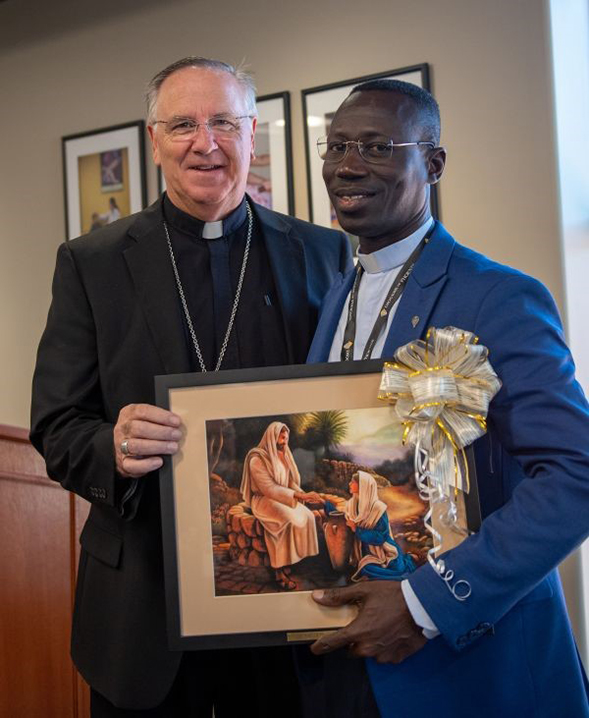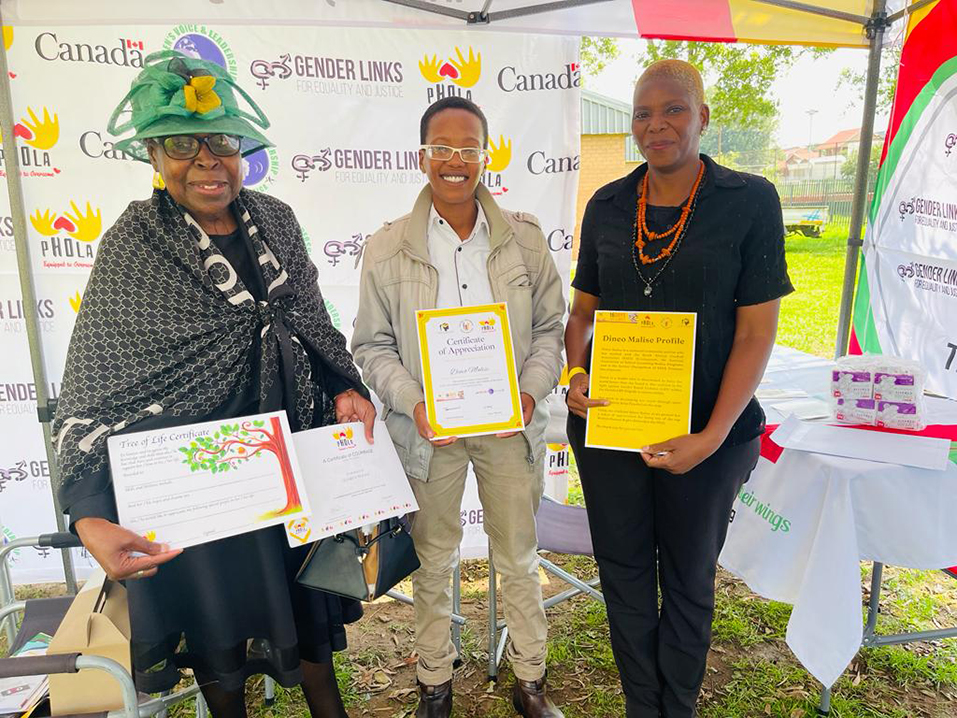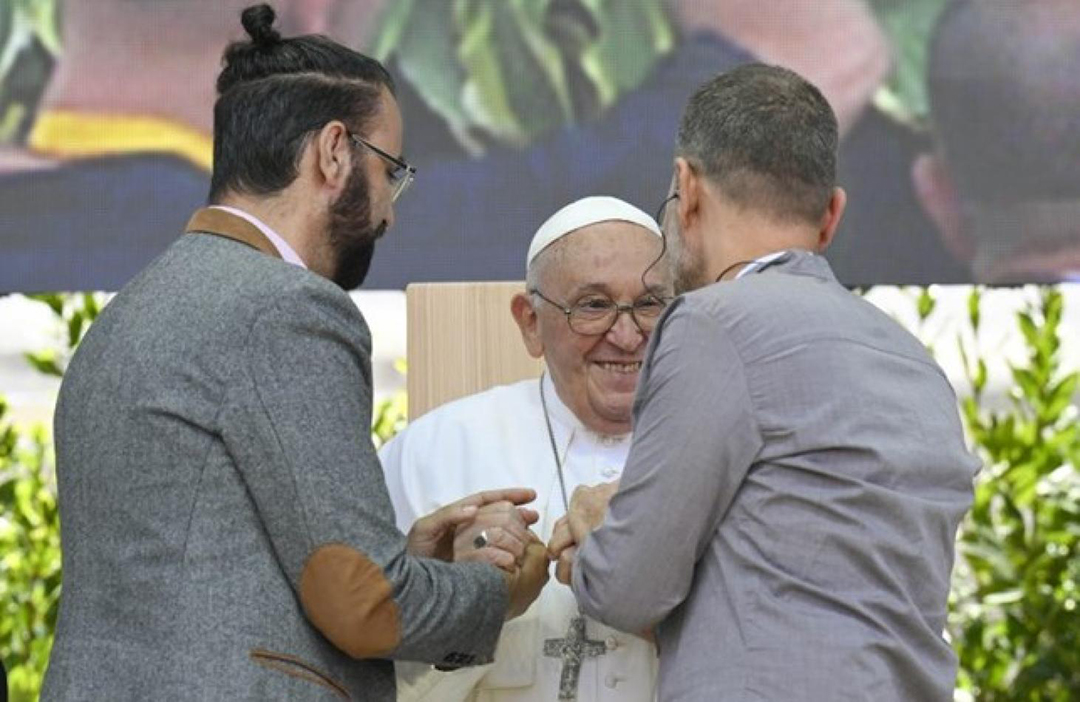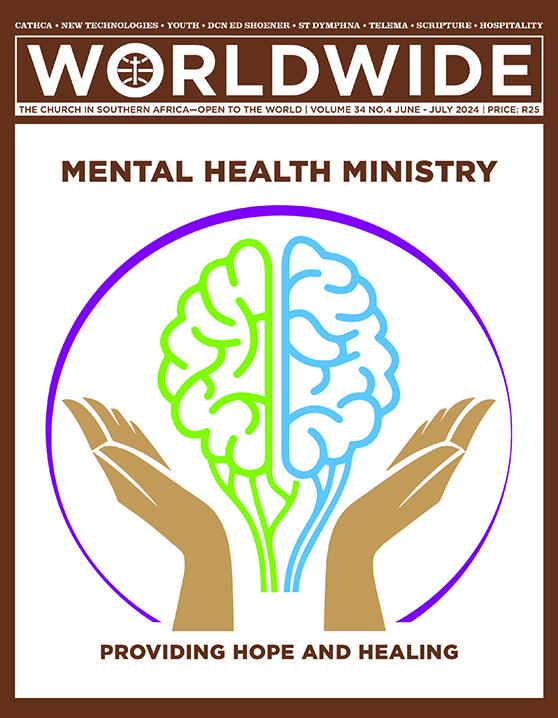
MENTAL HEALTH MINISTRY: PROVIDING HOPE AND HEALING
The colours symbolise peace and nature, the brain represents the mind and the hands imply care—thus giving the impression of ‘the mind in caring hands.’ (Lauren Bikhani, Mental Health Ministry Coordinator at All Saints Catholic Church, Ennerdale, Johannesburg).
Design by Warren Singh from DesignCreed.
RADAR • CHRISTIANITY
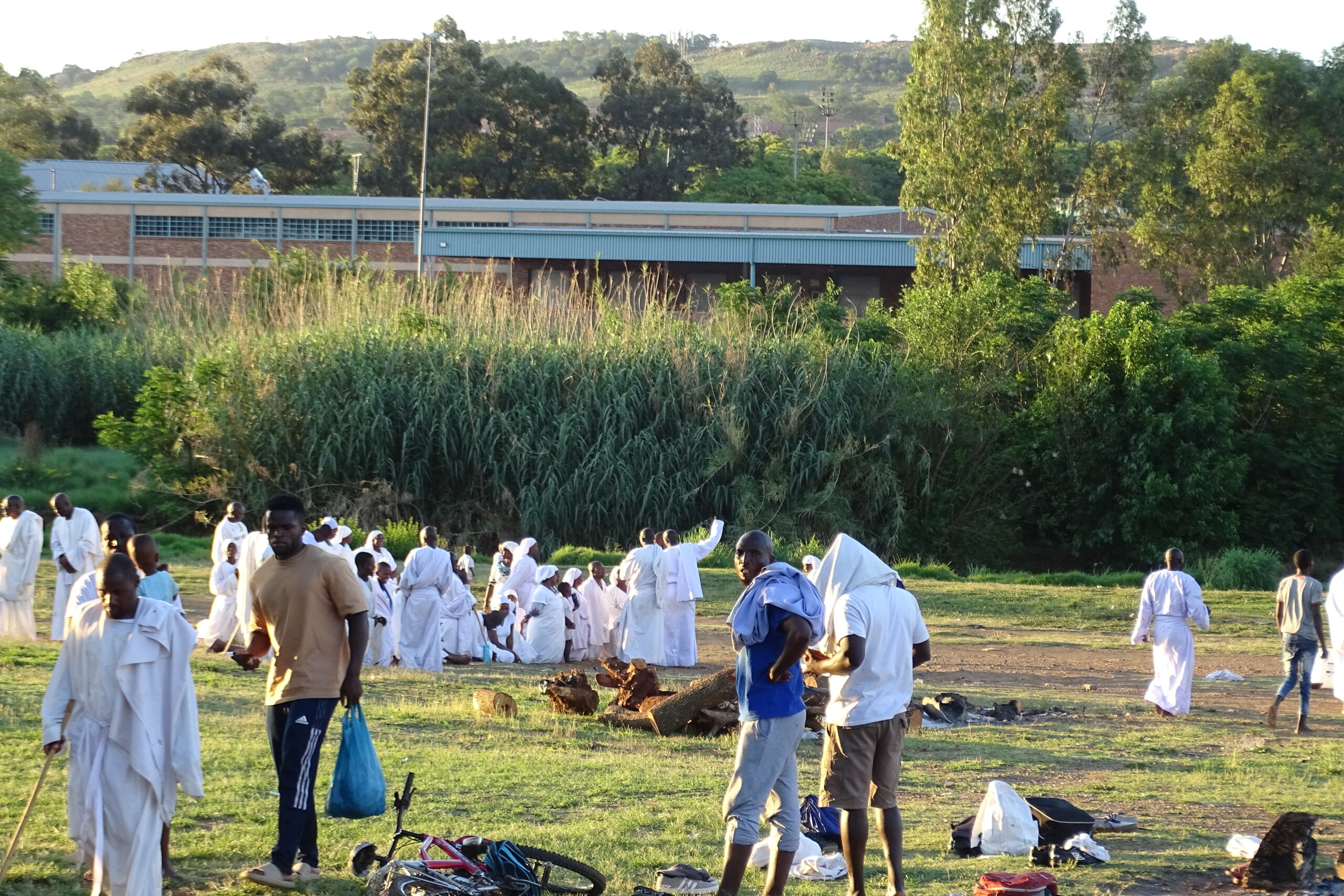
CHRISTIANITY IS CHANGING IN SOUTH AFRICA
BY PROF. DION FORSTER, DEPARTMENT OF BELIEFS AND PRACTICES | FACULTY OF THEOLOGY, FREE UNIVERSITY OF AMSTERDAM
SOUTH AFRICA is one of only three countries in the world where religious participation has increased in recent years. The other two countries are Italy and the US.
The 2022 Census data shows that South Africa’s Christian adherence has once again increased. However, the types of Christianity that are growing, and those that are declining, tell us some interesting things about the religious, cultural, social, and political sentiments of South Africans. Only 2.9% of the population claimed to have no religious views at all—this means that 97.1% of South Africans profess or practice some form of faith.
Christianity is the most popular religious affiliation, with 85.3% of South Africans identifying as Christians of some kind or another. One simply needs to drive through any South African cities or towns to see the diversity of “Christianities” on display. They range from cathedrals to storefront “miracle centres,” to African indigenous communities worshipping in nature.
While there are some similarities in their general beliefs, one would hardly be able to see what a west African styled neo-Pentecostal community has in common with, for example, a Dutch Reformed church group or perhaps the beliefs of members of the Zion Christian Church (ZCC). They may all be labelled as Christian, but their doctrines and practices seem worlds apart.
In South Africa, there has been a steady decline in membership of the so-called “mainline” Christian churches, such as the Methodists, Anglicans, Catholics or Dutch Reformed. At the same time, the country has seen the membership of African indigenous Christian groupings (such as the ZCC and the Johane Masowe and Johane Marange churches), and postcolonial Christian groupings (like prosperity and neo-Pentecostal groups) increasing significantly.
Understanding a nation’s religious beliefs helps explain the fabric of its society and also maps how that society changes. Churches exert political influence. This is particularly evident at election time when political leaders attend mega-churches to campaign for votes and be endorsed by Church leaders. It’s crucial to make sense of the worldviews of South Africa’s diverse Christian churches, and understand the potential impact of their moral and theological beliefs on the country’s collective future.
The colonial churches
Like many aspects of South African society, religious traditions have important links to a painful and racist colonial and apartheid history. Early forms of British, Dutch and French Christianities which arrived in South Africa were as committed to their cultural and political identities as they were to their religious affiliations. As historians have shown, missionaries often mixed their creeds with the political and economic interests of their countries of origin. This had devastating effects on the cultures, identities and beliefs of the indigenous populations. African religion was vilified as evil and even labelled as witchcraft. Local ethical systems were replaced by foreign western ideals. Languages, art and customs were eroded and replaced with foreign symbols and practices that alienated people from their histories. There lies one of the main reasons that these colonial Christian churches are being rejected in favour of postcolonial and African indigenous beliefs.
The new churches
My research shows three broad reasons for the growth of these “new” churches over the past decades.
Firstly, cultural reasons: there is growing interest among both “ordinary” believers and scholars in the decolonisation of religious beliefs and practices. The largest proportion of South Africa’s Christians (40.82%) are expressing a longing to bring together African identity and African philosophical systems with their religious beliefs. They are opting to join church communities that preach, sing, and pray in African indigenous languages and that wear culturally appropriate clothing.
Secondly, socio-economic reasons: As South Africa’s predominantly young population struggles with poverty, unemployment, and inadequate social provisions, there is a turn to churches that promise supernatural pathways to wealth and social prominence. These churches, which often have links to either west African or US prosperity gospels, have long abandoned the central elements of colonial Christianities —like religious vestments or liturgies that still pray for the King of England. They are devoting themselves to new forms of imperialism—like capitalism, individual liberty, and identity politics.
Thirdly, there are political reasons for the growth of these churches. Many South Africans have found the historical ties between “mainline” Christianity and political parties to be a disappointment. In the last parliamentary census, 63% of parliamentarians indicated they were members of the Methodist church. As South Africans lose faith in the promises of politicians, they also lose faith in those religious communities that seem to uncritically support them.
Why this matters
A history of Christianity offers insights into the hopes, dreams, frustrations, and sorrows of South Africans. This can be seen in how religion has shifted along social, political, and economic lines. South Africans remain religious, and are growing in religiosity. Some of the forms of Christianity to which they are turning are politically dangerous and economically harmful, while others offer the promise of a more authentically African way of believing and living. What people believe matters, and what they no longer believe matters too.

